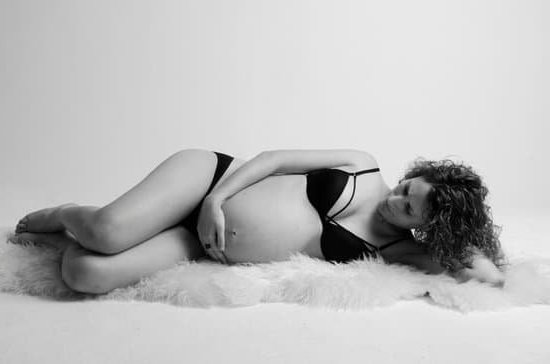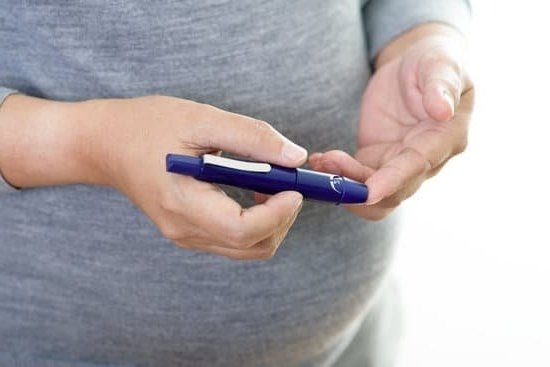The earliest signs of pregnancy can be easy to miss if you don’t know what to look for. The first indication that you may be pregnant is often found in subtle changes within your body. This article will delve into the various early signs and symptoms of pregnancy. Understanding the earliest signs of pregnancy can help individuals recognize whether they may be expecting a child.
For many women, the first sign of pregnancy is a missed period, but there are other indicators that might appear even before this. Changes in breast sensitivity and size, fatigue and increased sleepiness, nausea and morning sickness, heightened sense of smell, frequent urination, mood swings and emotional changes, as well as spotting and cramping, are all potential early signs of pregnancy. These symptoms may vary from person to person, but they can provide important clues.
Understanding the menstrual cycle and ovulation is crucial for recognizing when these early signs might become apparent. By understanding what happens during each phase of the menstrual cycle, individuals can better comprehend how their bodies may react to a potential pregnancy.
It’s important to note that while these symptoms could indicate pregnancy, they could also be related to other health issues or normal variations in one’s body. Therefore, consulting with a healthcare provider is always recommended for an accurate diagnosis.
Changes in Breast Sensitivity and Size
During the earliest signs of pregnancy, many women report changes in their breast sensitivity and size. This can include tenderness, tingling, or a fullness in the breasts. Some women may notice that their breasts feel heavier or fuller, while others may experience soreness or discomfort when wearing a bra or during physical activity.
These changes are often attributed to hormonal fluctuations as the body prepares for pregnancy. The hormone estrogen increases blood flow to the breasts, causing them to become more sensitive and possibly larger. Additionally, the hormone progesterone can also contribute to breast changes by causing the milk ducts to expand and the glands to swell.
It is important to note that not all women will experience changes in breast sensitivity and size as an early sign of pregnancy. However, for those who do notice these symptoms, it can be a strong indication that conception has occurred.
| Signs | Explanation |
|---|---|
| Breast sensitivity | The hormonal changes during early pregnancy can cause increased blood flow to the breasts, leading to tenderness and sensitivity. |
| Increase in breast size | Hormones such as estrogen and progesterone can cause the breasts to feel fuller and heavier as they prepare for potential milk production. |
Fatigue and Increased Sleepiness
One of the earliest signs of pregnancy that women may experience is an overwhelming sense of fatigue and increased sleepiness. This tiredness can be extreme in some cases, causing women to feel like they can’t function without taking frequent naps or going to bed earlier than usual.
Causes
During early pregnancy, the body undergoes hormonal changes that can lead to increased levels of progesterone, which is known for causing drowsiness. Additionally, the body is working hard to nurture the developing fetus, which can also contribute to feelings of exhaustion.
Managing Fatigue
While it may be difficult to combat the tiredness associated with early pregnancy, there are ways to manage it. It’s important for pregnant women to prioritize rest and relaxation, and make sure they are getting adequate amounts of sleep each night. Engaging in light exercise, eating a balanced diet, and staying hydrated can also help combat feelings of fatigue.
It’s crucial for women experiencing extreme fatigue along with other symptoms related to early pregnancy to speak with a healthcare provider for proper guidance and care.
Nausea and Morning Sickness
The exact cause of nausea and morning sickness during pregnancy is not fully understood, but it is believed to be related to the hormonal changes that occur in a woman’s body. Specifically, the rise in human chorionic gonadotropin (hCG) levels, which are produced by the placenta, has been linked to these symptoms. Additionally, an increase in estrogen levels may also play a role.
For some women, nausea and morning sickness can be mild and manageable, while for others, it can be severe and significantly impact their daily life. Seeking advice from a healthcare provider is recommended if these symptoms become overwhelming or lead to dehydration due to excessive vomiting.
| Early Signs of Pregnancy | Nausea and Morning Sickness |
|---|---|
| Typically start at 2-4 weeks after conception | Can be more pronounced in the morning but may occur at any time of day |
| Believed to be related to hormonal changes | Rise in hCG levels and increase in estrogen may contribute to these symptoms |
Heightened Sense of Smell
When it comes to the earliest signs of pregnancy, a heightened sense of smell is often one of the most surprising and noticeable symptoms. During early pregnancy, many women experience a heightened sense of smell, also known as hyperosmia.
This change in olfactory perception can be quite intense and may lead to strong reactions to certain odors that were once tolerable. While this symptom can be bothersome for some women, it is actually linked to the increased levels of estrogen in the body, which happens during pregnancy.
Some common smells that may suddenly become intolerable for pregnant women include cooking odors, perfume, cigarette smoke, and even natural scents such as flowers or grass. This sensitivity has been linked to the body’s instinctive protective mechanism. However, it can also cause discomfort and even nausea in some cases.
As part of recognizing the earliest signs of pregnancy, it’s important for expecting mothers to understand that this heightened sense of smell might not only be limited to unpleasant odors. Some women also report a newfound enjoyment for certain scents or foods that they previously had no particular inclination towards.
This change in smell perception is often part and parcel with many other early pregnancy symptoms and is worth taking into consideration when planning for maternity leave or adjusting your lifestyle due to the changes that are occurring within your body.
- Increased levels of estrogen contribute to hyperosmia
- Strong reactions to certain odors
- Newfound enjoyment for certain scents or foods
Frequent Urination
One of the earliest signs of pregnancy that women may experience is frequent urination. This symptom can occur as early as one week after conception, and is often attributed to the hormonal changes that take place during pregnancy. The increase in blood volume and hormonal changes cause the kidneys to process more fluid, leading to more frequent trips to the bathroom.
Causes
During pregnancy, the body produces more of the hormone human chorionic gonadotropin (hCG), which can contribute to increased urinary frequency. Additionally, as the uterus expands and puts pressure on the bladder, it can lead to a feeling of needing to urinate more frequently.
Management
While frequent urination is a common early sign of pregnancy, there are ways to manage this symptom. Women can try emptying their bladder completely each time they urinate, avoiding drinking too much liquid before bed, wearing panty liners for any leakage issues, and practicing pelvic floor exercises to help strengthen bladder control muscles.
Overall, frequent urination may be an early clue that a woman could be pregnant. However, if accompanied by other symptoms such as burning or pain during urination or fever, it’s important for her to speak with a healthcare provider to rule out any potential infections or complications.
Mood Swings and Emotional Changes
When it comes to the earliest signs of pregnancy, mood swings and emotional changes can be one of the first indicators that something is happening in a woman’s body. These changes can happen as early as one week after conception and are often attributed to the hormonal shifts that occur during pregnancy. Here are some of the common mood swings and emotional changes that women may experience in the early stages of pregnancy:
- Irritability: Many women may find themselves feeling more irritable than usual during the early stages of pregnancy. This can be attributed to the hormonal changes happening in their bodies.
- Emotional sensitivity: Some women may find themselves becoming more emotionally sensitive or weepy. They may experience intense emotions without a clear cause or reason for their feelings.
- Anxiety and stress: Pregnancy can bring about feelings of anxiety and stress, especially for women who were not actively trying to conceive. The realization that they are pregnant might bring about worries about what the future holds.
It’s important for women experiencing these mood swings and emotional changes to seek support from loved ones and healthcare providers. Understanding that these feelings are a normal part of early pregnancy can help women cope with them more effectively.
Spotting and Cramping
In conclusion, being able to recognize the earliest signs of pregnancy is important for many women who are trying to conceive. Understanding the menstrual cycle and ovulation can help women track their fertility and identify potential early pregnancy symptoms. Changes in breast sensitivity and size, fatigue and increased sleepiness, nausea and morning sickness, heightened sense of smell, frequent urination, mood swings and emotional changes, as well as spotting and cramping are all common indicators that a woman may be pregnant.
It’s important to note that these symptoms can vary from woman to woman, and not every woman will experience all of these signs. Additionally, some women may not notice any symptoms at all during the earliest stages of pregnancy. However, for those who do experience these early signs of pregnancy, it’s essential to seek medical confirmation through a home pregnancy test or a visit to a healthcare provider.
Ultimately, understanding the earliest signs of pregnancy can help women feel more in control of their fertility journey. Whether planning for a baby or simply wanting to be aware of potential changes in their body, recognizing these signs can provide valuable information as women navigate the path to motherhood.

Welcome to my fertility blog. This is a space where I will be sharing my experiences as I navigate through the world of fertility treatments, as well as provide information and resources about fertility and pregnancy.





